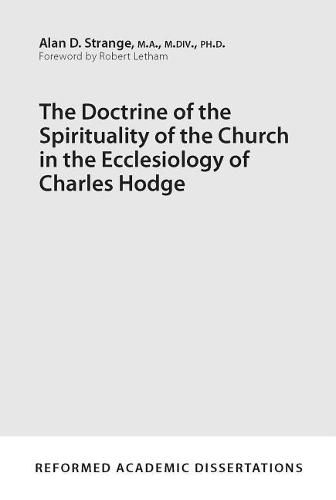Readings Newsletter
Become a Readings Member to make your shopping experience even easier.
Sign in or sign up for free!
You’re not far away from qualifying for FREE standard shipping within Australia
You’ve qualified for FREE standard shipping within Australia
The cart is loading…






Charles Hodge (1797-1878) was arguably the leading Old School Presbyterian of the nineteenth century. He was involved with all the great ecclesiastical controversies of his day, including the question of the spirituality of the church. In Hodge’s hands the spirituality of the church functioned as a complex and subtle doctrine, not serving, as it did with some, as a muzzle for the prophetic voice of the church into society, but as a means of keeping its ecclesiastical focus from being swallowed by the political. For Hodge, the spirituality of the church meant that the primary calling of the church was not, first of all, temporal but spiritual, especially in its carrying out the Great Commission. Hodge believed, however, that even in carrying out its essentially spiritual duties, the scope of the church’s concern was broader temporally than some partisans of the spirituality of the church constructed it.
$9.00 standard shipping within Australia
FREE standard shipping within Australia for orders over $100.00
Express & International shipping calculated at checkout
Charles Hodge (1797-1878) was arguably the leading Old School Presbyterian of the nineteenth century. He was involved with all the great ecclesiastical controversies of his day, including the question of the spirituality of the church. In Hodge’s hands the spirituality of the church functioned as a complex and subtle doctrine, not serving, as it did with some, as a muzzle for the prophetic voice of the church into society, but as a means of keeping its ecclesiastical focus from being swallowed by the political. For Hodge, the spirituality of the church meant that the primary calling of the church was not, first of all, temporal but spiritual, especially in its carrying out the Great Commission. Hodge believed, however, that even in carrying out its essentially spiritual duties, the scope of the church’s concern was broader temporally than some partisans of the spirituality of the church constructed it.